

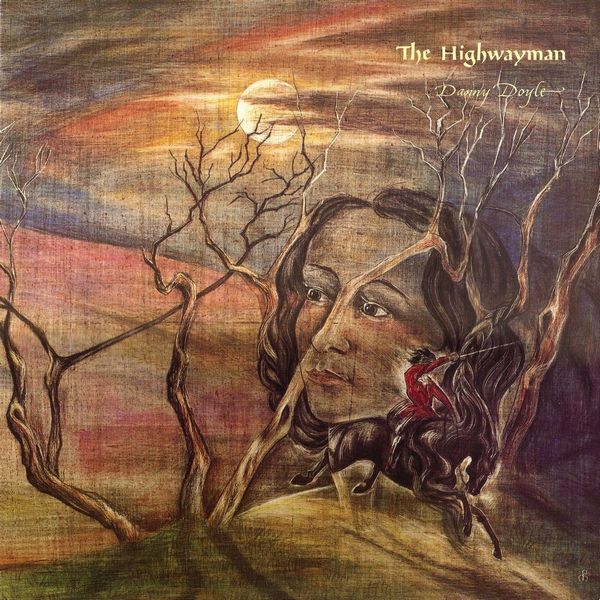 |
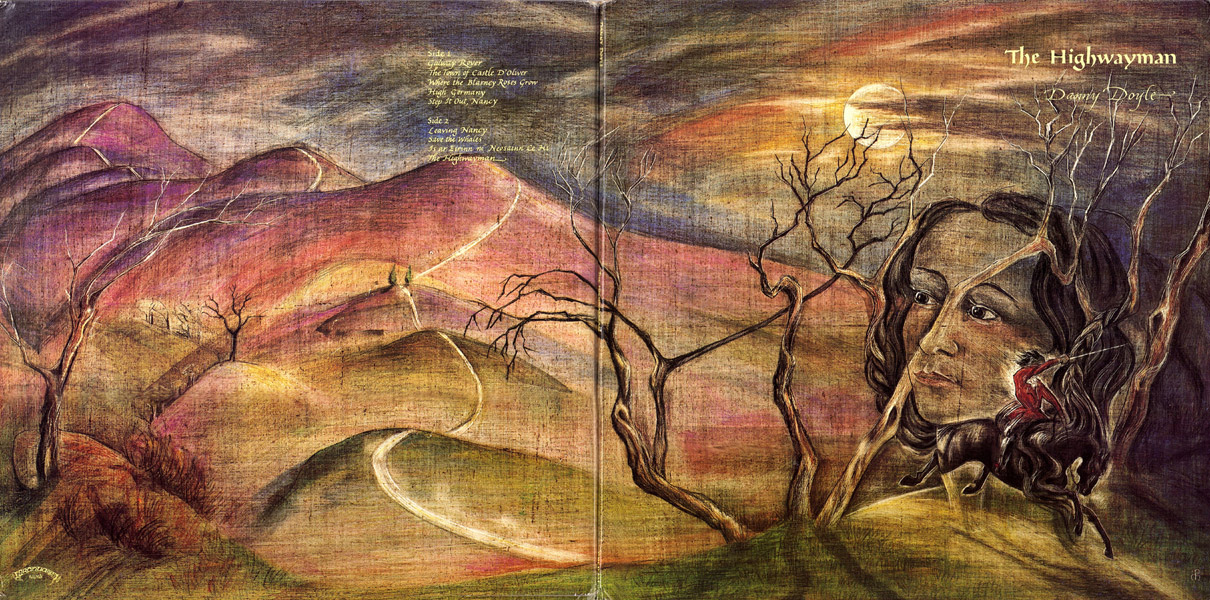
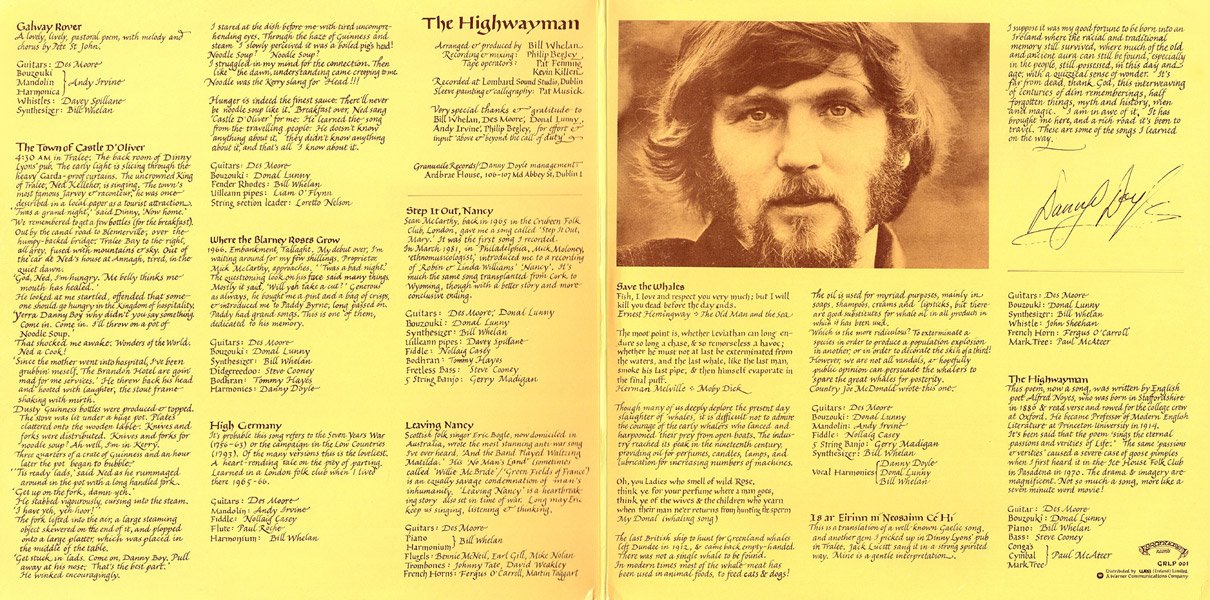 |
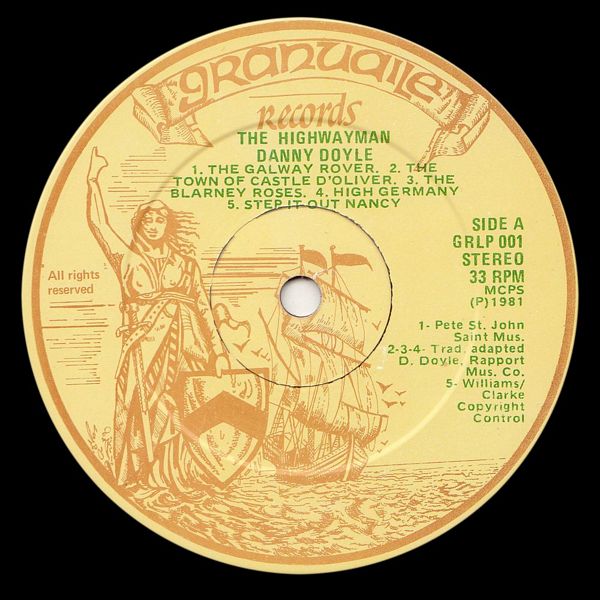
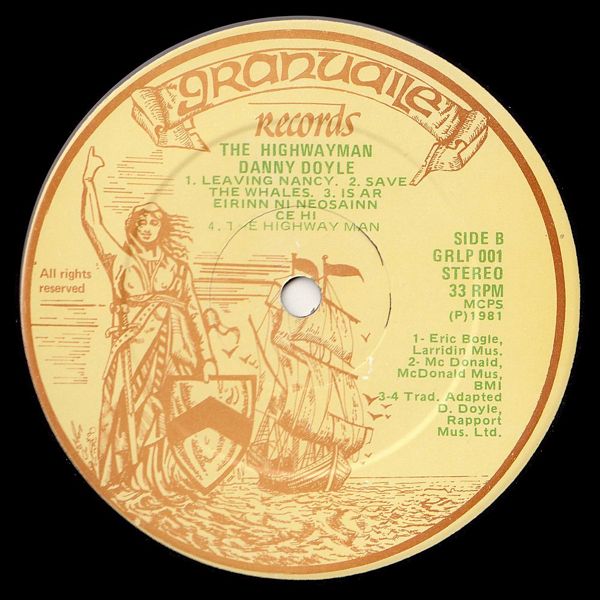 |
Sleeve Notes
Galway Rover — A lovely, lively, pastoral poem, with melody and chorus by Pete St John.
The Town of Castle D'Oliver — 4.30 am in Tralee. The back room of Dinny Lyons' pub. The early light is slicing through the heavy Garda-proof curtains. The uncrowned king of Tralee, Ned Kelleher, is singing. The town's most famous Jarvey & raconteur, he was once described in a local paper as a tourist attraction. 'Twas a grand night,' said Dinny, 'Now home.'
We remembered to get a few bottles (for the breakfast). Out by the canal road to Blennerville, over the humpy-backed bridge. Tralee Bay to the right, all grey, fused with mountains & sky. Out of the car at Ned's house at Annagh, tired, in the quiet dawn.
'God, Ned, I'm hungry. Me belly thinks me mouth has healed.'
He looked at me startled, offended that someone should go hungry in the Kingdom, of hospitality, 'yerra Danny Boy why didn't you say something. Come in. Come in. I'll throw on a pot of Noodle Soup. '
That shocked me awake. Wonders of the World. Ned a Cook!
Since the mother went into hospital, I've been grubbin' meself .The Brandon Hotel are goin' mad for me services.' He threw back his head and hooted with laughter, the stout frame shaking with mirth.
Dusty Guinness bottles were produced & topped. The stove was lit under a huge pot. Plates clattered onto the wooden table. Knives and forks were distributed. Knives and forks for noodle soup? Ah well, I'm in Kerry.
Three Quarters of a crate of Guinness and an hour later the pot began to bubble.
''Tis ready lads,' said Ned as he rummaged around in, the pot with a long handled fork.
'Get up on the fork, damn yeh.'
He stabbed vigorously, cursing into the steam.
'I have yeh, yeh hoor!'
The fork lifted into the air, a large steaming object skewered on the end of it, and plopped onto a large platter, which was placed in the middle off the table.
'Get stuck, in lads. Come on, Danny Boy. Pull away at his nose. That's the best part.' He winked encouragingly.
I stared at the dish before me with tired uncomprehending eyes. Through the haze of Guinness and steam I slowly perceived it was a boiled pig's head! Noodle Soup? Noodle Soup ?
I struggled in my mind for the connection. Then like the dawn, understanding came creeping to me. Noodle was the Kerry slang for Head!!!
Hunger is indeed the finest sauce. There'll never be noodle soup like it. Breakfast over, Ned sang 'Castle D' Oliver' for me. He learned the song from the travelling people. He doesn't know anything about it, they didn't know anything about it, and that's all I know about it.
Where the Blarney Roses Grow — 1966. Embankment, Tallaght. My debut over, I'm waiting around for my few shillings. Proprietor, Mick McCarthy, approaches. 'Twas a bad night.' The questioning look on his face said many things. Mostly it said, 'Will yeh take a cut ?' Generous as always, he bought me a pint and bag of crisp & introduced my Paddy Byrne, long passed on. Paddy had grand songs. This is one of them, dedicated to his memory.
High Germany — It's probable this song refers to the Seven Years War (1756-63) or the campaign in the Low Countries (1793). Of the many versions this is the loveliest. A heart-rending tale on the pity of parting. Learned in a London folk club when I lived there 1965-66.
Step It Out, Nancy — Seán McCarthy, back in 1965 in the Crubeen Folk Club, London, gave me a song called 'Step It Out, Mary.' It was the first song I recorded. In March 1981, in Philadelphia, Mick Moloney 'ethnomusicologist,' introduced me to a recording of Robin & Linda Williams' ''Nancy'. It's much the same, song transplanted from Cork to Wyoming, though with a better story and more conclusive ending.
Leaving Nancy — Scottish folk singer Eric Bogle, now domiciled in Australia, wrote the most war song I've ever heard, 'And the Band Waltzing Matilda.' His 'No Man's Land' (sometimes called 'Willie McBride'/'Green Fields of France') is an equally savage condemnation of man's inhumanity, 'Leaving Nancy' is a heartbreaking story also set in time, of war. Long may Eric keep us singing, listening & thinking.
Save the Whales — Fish, I love and respect you very much; but I will kill you dead before the day ends.
Ernest Hemingway * The Old Man and the Sea
The moot point is, whether Leviathan can long endure so long a chase, & so remorseless a havoc; whether he must not at last be exterminated from the waters, and the last whale, like last man, smoke his last pipe, & then himself evaporate in the final puff.
Herman Melville * Moby Dick
Though many of us deeply deplore the present day slaughter of whales, it is difficult not to admire the courage of the early whalers who lanced and harpooned their prey from open boats. The industry reached its peak in the nineteenth century, providing oil for perfumes, candles, lamps, and lubrication for increasing numbers of machines.
Oh, you Ladies who smell of wild Rose, think ye for your perfume where a man goes, think ye of the wives & the children who yearn when their man ne'er returns from hunting the sperm
My Donal (whaling song)
The last British ship to hunt for Greenland whales left Dundee in 1912 & came back empty-handed There was not a single whale to be found. In modern times most of the whale meat has been used in animal foods, to feed cats & dogs!
The oil is used for myriad purposes, mainly soaps, shampoos, creams and lipsticks, but there are good substitutes for whale oil in all products in which it has been used.
Which is the more ridiculous? To exterminate a species in order to produce a population explosion in another, or in order to decorate the skin of a third! However, we are not all vandals, & hopefully public opinion can persuade the whalers to spare the great whales for posterity.
Country Joe McDonald wrote this one.
I ar Eirinn nÍ Neosaiim Cé Hí — This is a transition of a well-known Gaelic song, and another gem I picked up in Dinny Lyon's pub in Tralee. Jack. Lucitt sang it in a strong spirted way. Mine is a gentle interpretation.
The Highwayman — This poem, now a song, was written by English poet Alfred Noyes, who was born in Staffordshire in 1880 & read verse and rowed for the college crew at Oxford. He became Professor of Modern English Literature at Princeton University in 1914. It's been said that the poem 'sings the eternal passions and verities of Life.' The same passions & verities caused a severer case of goose pimples when I first heard it in the Ice House Folk Club in Pasadena in 1970. The drama & imagery are magnificent. Not so much a song, more like a seven-minute word movie!
I suppose it was my good fortune to be born into an Ireland where the racial and traditional memory still survived, where much of the old and ancient aura can still be found, especially in the people still possessed in this day and age with a quizzical sense of wonder. It's far from dead, thank God, this interweaving of centuries of dim rememberings, half-forgotten things, myth and history, men and magic. I am in awe of it. It has brought me here, and a rich road it's been to travel. These are some of the songs I learned on the way.
Danny Doyle